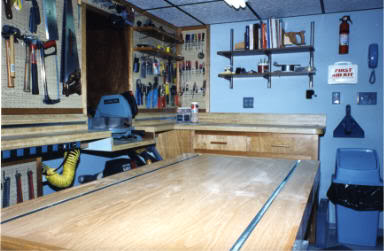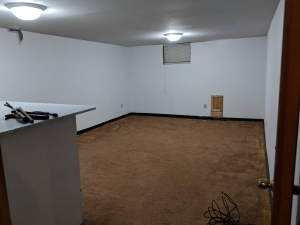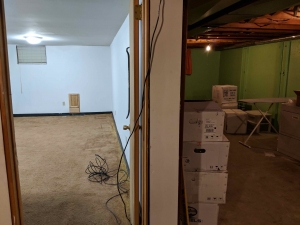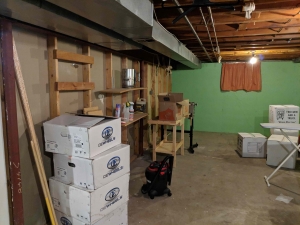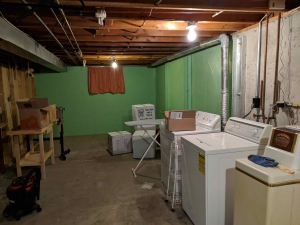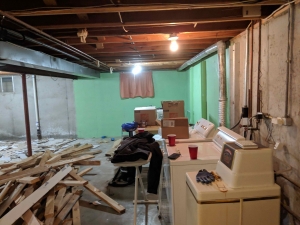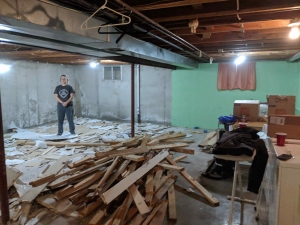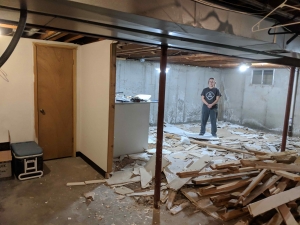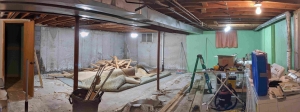I just bought a home where I plan to build out a shop in the basement. The shop will basically be 24x20. I have an electrician coming out after I move in to install quad outlets every 6 feet at waist height, plus quads every 8' in the ceiling for lighting. I have budgeted $5k for building my shop and will be purchasing the following: dust collection, grinder, compound miter saw, table saw, router, drill press, disc/belt sander, band saw (most expensive, by far), air compressor, planner, and jointer. I still have overhead for misc supplies, like clamps and jigs and stuff. My first project will be a workbench. Any advice for a n00b that has done some homework?
Sounds aggressive and I do not want to put a damper in your plans but that is not a big shop at all and i know because I work out of one about the same dimensions and to get those tools in there and be able to work in there is not an easy task. I suggest that you take it slow and decide what it is you want to make and be able to do in your shop. You mention bandsaw being the most expensive tool. Then I presume you will base your work around a bandsaw as opposed to a tablesaw. What is the panel situation to start with?? Do you have the capabilities for such an add on. ??? Some of those tools will need to be bench top and here is where you need to make decisions. Not all cut and dry fitting out a workshop. Everyone is going to tell you what they have. I suggest you do a plan layout before you start putting outlets willy nilly on walls. Draw up what you think is a good layout. You will need cabinets. You will need pegboard of some sort to store tools. You should include an air cleaner. Are you planning on doing finishing work because then that takes planning too. I suggest you place tools on wheels. Do you plan to duct the dust collector to tools or use flex hose and drag it around. This will effect size of collector. How tall is the ceiling?? Do not forget wood storage ability. Takes up room. I know. When I was building the cabinets and shelves for my shop I actually had to do it in the game room portion of the basement because as I said room is a premium when building large projects. My furniture days are over and days of real large projects.
My shop the tablesaw is the main important tool. Not a project gets done with out that tool touching it in some way. Can not say that about any other tool in the shop.
Again without knowing what your overall plans for projects it will be hard to suggest tools but if you are getting into furniture or larger projects you want big boy tools with HP. If you are doing small stuff then bench top tools will get you there. Build as you go and do not try to do it all in one shot. You will kick yourself later. Buy the best tools you can afford. As they say buy once. That is my advice.


5K that is not going to do it. Sorry. Get you started but you will see.
You say your first job is a workbench. Again thought needs to go into it. Build it well and put on wheels. I would build a shelf under it to support various bench top tools. Do not get crazy and make it too wide. Length is better. Decide if you want an end vice. Always handy. I incorporated "T" tracks in the top of mine for various hold downs or jigs built off them. I suggest you add a power strip to the side of the rails somewhere with a chord to plug in somewhere. You then can plug various things in and charge things and leave under table. I pull most of my portable tools off that power strip as opposed to outlets on the walls. I have a bunch of 6 foot power chords that is use if I need to stretch the chords for use off the table. As I said think it through.
Here is an older photo of the top of my bench to show you what I meant.
